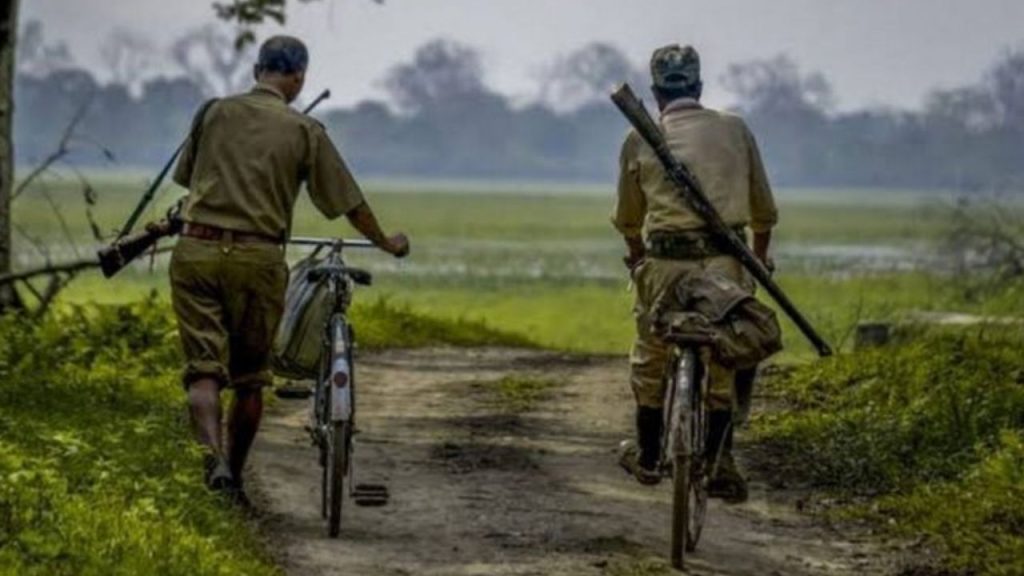If you’ve ever worried that a high blood pressure reading could mess up your career plans, you’re not alone. That’s exactly what happened recently to a group of applicants for the Odisha Forest Service in India. They cleared their written exams fair and square, but when it came time for the physical endurance (walking) test, some were disqualified because of elevated blood pressure (BP) readings taken on digital devices.

But here’s the kicker: the High Court stepped in, saying the rejection was arbitrary and against the rules. Now, those candidates are getting a second chance. This case not only highlights issues in recruitment systems but also teaches us valuable lessons about health screenings, fairness in hiring, and knowing your rights.
This Forest Service Applicant Was Rejected for High BP
| Aspect | Details |
|---|---|
| Case | Odisha Forest Service recruitment rejection for high BP |
| Court Involved | Odisha High Court |
| Number of Candidates | 11 disqualified |
| Posts Affected | 45 Assistant Conservators of Forests (Group A-JB), 131 Forest Rangers (Group B) |
| Issue | Disqualification based on digital BP readings, not backed by recruitment rules |
| Court Ruling | Disqualification quashed; candidates allowed to retake the walking test |
| Next Step | Fresh walking test within 4 weeks, followed by viva-voce if fit |
| Official Reference | Odisha Public Service Commission |
The story of these Odisha Forest Service candidates shows how important it is to balance health standards with fairness. Rejection for high blood pressure, when not backed by official rules, is not just unfair—it’s illegal.
For job seekers, the takeaway is clear: be proactive with your health, know the rules, and don’t be afraid to stand up for your rights. For recruiters, the message is equally important: transparency and fairness build trust, while arbitrary decisions can land you in court.
Why This Story Matters
Think about it—after years of studying, prepping, and sweating through written exams, imagine being told you’re out of the running because a machine says your BP is a little high. No retest. No second opinion. Just done.
That’s what these forest service hopefuls faced. But the court said: “Hold up. Where’s the rule that says this is allowed?” Turns out, there wasn’t one. And that’s why this case matters—it protects fairness in public service jobs and shows that health tests must follow proper guidelines.
Breaking Down the Court’s Decision
The Background
- Recruitment was announced in May 2023 for the Odisha Forest Service.
- Candidates passed the written exam and moved on to the walking test (a mandatory part of the fitness evaluation).
- Between July 14–20, 2025, 11 candidates were told they couldn’t proceed because their blood pressure was high, as measured by digital BP monitors.
The Problem
The recruitment rules didn’t mention disqualification based solely on digital BP readings. That meant the candidates were barred without any legal or official backing.
The Court’s Take
Justice Aditya Kumar Mohapatra ruled:
- There’s no official provision for rejection based on digital BP readings.
- The decision to disqualify was arbitrary, unfair, and illegal.
- Candidates must be allowed to reappear for the test if they provide:
- A medical certificate from a registered doctor stating their BP is normal.
- An undertaking confirming their medical fitness.
The Outcome
The court ordered a fresh walking test within 4 weeks. If the candidates pass and are declared fit, they can continue on to the viva-voce (oral interview) stage.
Why Blood Pressure Became a Problem
Blood pressure is a huge health marker. According to the Centers for Disease Control and Prevention (CDC), nearly 1 in 2 adults in the U.S. has high blood pressure (CDC source). It’s called the “silent killer” because it often shows no symptoms but increases risk for heart disease and stroke.
For physically demanding jobs—like being a forest ranger—authorities want to make sure candidates are fit enough. But here’s the catch:
- Digital BP monitors can give false high readings if you’re nervous, tired, or even if the cuff isn’t placed properly.
- Recruitment rules must clearly say how BP should be measured and what counts as “too high.” Otherwise, the system risks unfairly rejecting qualified people.
Practical Advice for Applicants Facing Health Screenings
This case teaches us some actionable steps anyone preparing for physical exams in job recruitment should keep in mind:
1. Know the Rules
Always read the official recruitment notification. If BP testing isn’t mentioned, and you’re rejected for it, that’s grounds for appeal.
2. Get Your Health Checked Early
Visit your doctor weeks before the test. Get a professional BP reading, and if it’s high, manage it with diet, exercise, or medication.
3. Avoid “White Coat Syndrome”
Stress and anxiety can spike BP during medical exams. To calm your nerves:
- Take deep breaths.
- Avoid coffee or energy drinks before the test.
- Sleep well the night before.
4. Keep Documentation
If you have normal BP readings from a doctor but a test device says otherwise, having medical proof can help you appeal unfair decisions.
5. Know Your Rights
Every country has its own recruitment rules and labor rights laws. If you’re rejected unfairly, you may have the option of appealing through the courts or administrative bodies.
Bigger Lessons for Recruiters and Institutions
This case isn’t just about a handful of candidates in India—it’s a wake-up call for employers everywhere. If you’re setting rules for recruitment, you need to:
- Document health standards clearly (e.g., what BP level disqualifies someone).
- Use reliable testing methods and offer retests.
- Ensure transparency so that candidates trust the process.
The U.S. Equal Employment Opportunity Commission (EEOC) provides clear guidelines on medical exams for job applicants (EEOC source). Following such frameworks helps avoid lawsuits and builds fairness.
Odisha Emerges as Steel Powerhouse Target—JSW, POSCO Plot Mega Expansion
Meet the Inspirational Panda Sisters of Odisha—Selected for World Championship, Blessed by CM Majhi
FAQs
Q1. Can you be rejected from a job for high blood pressure?
Yes, but only if the job requires strict health standards (like military, police, or forest service) and if the rules clearly say so. Arbitrary rejection, like in this case, can be challenged.
Q2. How is blood pressure usually tested in job exams?
Typically, it’s done with a manual sphygmomanometer or validated digital devices. Multiple readings are often recommended for accuracy.
Q3. What’s considered “high BP” for disqualification?
It depends on the rules. Medically, 120/80 mmHg is normal, and 140/90 mmHg or higher is considered high (per American Heart Association). But unless recruitment rules specify, disqualification may not hold legally.
Q4. Can anxiety affect my BP reading during exams?
Absolutely. Stress, lack of sleep, or even caffeine can cause temporary spikes. That’s why doctors often take multiple readings.
Q5. What should I do if I’m unfairly disqualified?
Keep records, get a doctor’s certificate, and consider legal recourse. Courts have stepped in before, as this Odisha case shows.
‘





